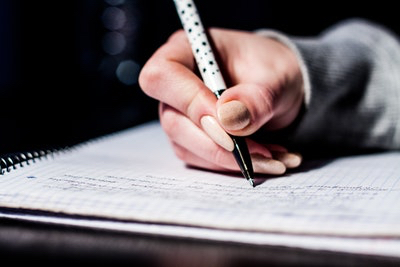Facing anxiety while travelling abroad
A bead of sweat formed above my left temple. I stood on the curb, the ends of my canvas-covered feet hanging over the edge. I watched the people, the crowds of the unknown, pass me by, and hurried to get to their destinations. Unlike these unknown throngs of people, I was not in a hurry. I couldn’t be in a hurry, rushed to get to my destination. I was paralysed on the sidewalk, realising I was alone and about 4000 miles from home. The bead of sweat, brought on by the sensation of being completely overwhelmed by this realisation, trickled down my cheek. A white Audi sounded its horn and jolted me back into my new reality outside of Flughafen München. This was the first time in a foreign country for more than a few weeks. I was going to be here for months. Away from friends, family, and everything I knew, it consumed me. For the next couple of weeks facing anxiety while travelling abroad, defined me.
My experience of facing anxiety while travelling abroad is not unique. Traveling abroad, especially for an extended period of time can be stressful, both for first-timers and the experienced. It can bring about anxiety and panic. It’s easy to overthink the situation and worry. It might be due to the culture shock, the jet lag, or the homesickness. When you realise what’s ahead of you, that this isn’t some two-week vacation, that it’s much longer and you’ll be busy, working, going to school, volunteering, or doing whatever brought you to this new place, it can be a kick in the reality.
The impact
What isn’t always easy is managing that stress and anxiety. Initially, I handled it poorly. The first few weeks in Munich, I barely slept, barely spoke, and ate very little. I avoided many social situations and as a college student, that proved difficult. I turned down evenings out, drinks, dinner and so on. It wasn’t until about the third week that I came to the realisation I needed to do something, with a little prodding from a friend.
1) Close your eyes and breathe
Breathe slow and deep. Alternatively, lie down and close your eyes. Put yourself into a comfortable position so you can relax and focus on your breathing. Try not to fall asleep, however, at least not during this exercise. I’ve been in a few hotels and hostels where I fell asleep only to wake up completely disoriented and confused, unable to get my bearings on where I was or what the time was. When that happens, stress levels inevitably spike, which can then lead to a panic attack. I’ve been disoriented for minutes at a time, as I woke up and attempted to put my situation together.
2) Talk to people
This can be difficult for many people, myself included, but saying something as little as “hello” can aid in reducing stress and anxiety, especially done consistently. If your someone like me who lands on the introverted side of the personality spectrum, it can be-will be-a challenge to talk to people you don’t know.
What helped me is to remember that the people you meet have no idea who you are. They don’t know your personality and it’s highly likely you’ll never see them again after that split second of interaction, particularly those people you say hello to as you pass them on the street.
3) Don’t isolate yourself
This is especially true if you are traveling alone. The more isolated and withdrawn you allow yourself to become, the easier it is for anxiety to manifest itself. You may spend more time thinking about the things that worry you. A great way to overcome this in the beginning to stay in contact with people back home, such as through social networking websites or online communication services. At the same time, however, you don’t want this means of communication to become a crutch and hold you back from engaging the rest of the world.
4) Take your medication
If you take medication for anxiety, depression, or any other mental illness, always make sure you have it accessible at all times. The International Association for Medical Assistance to Travellers (IAMAT), recommends travellers research and “familiarise yourself with the psychiatric healthcare system of your destination country and find a mental health professional whom you can contact immediately in case of an emergency.” In the event you need help, get it and don’t wait and hope it will correct itself, because more often than not, it won’t correct itself and you’ll remain “stuck.”
5) Breathe…again!
Once I took a moment (well, several) and took many deep breaths, I felt better. It wasn’t an instant cure-all for the anxiety, but it helped and over the course of the week, my outlook changed and I was happier for it.
About the Author: Andrei Milosevic is an international student, traveller, and writer. Over the past few years, he has been studying international business as well as providing advice and insight into international calling and communication. In his free time he kayaks and Skypes with his best friend back home in Serbia.


